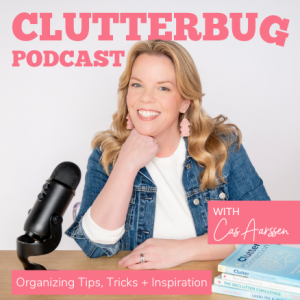

What is ”Eugenics” and How Does it Relate to Special Education?
Many people don't know what the word "eugenics" means, but parents of special education students will recognize the behavior associated with eugenicist thinking. Special education is not an isolated, siloed experience with no bearing on the rest of society, and history shows us that societies don’t just collapse because of a few bad actors or terrible ideas. They collapse because their systems stop evolving with the needs of their people.
I have spent the last 34 years upholding democracy at the local level through special education compliance, asserting all the while that special education is the “canary in the coalmine” for the rest of our civilization. The degree to which a society is civilized is revealed by the degree to which it takes care of its most vulnerable members.
When societies collapse, systems that once protected people can no longer fulfill their functions and start existing for their own benefit, causing constituent needs to become the means of perpetuating the system rather than the ends served by the system. These systems stop spiraling upward through stages of reflection, accountability, and self-correction and, instead, stagnate and drift into patterns we recognize all too well; patterns that include horrors like eugenics.
What Is Eugenics, and Why Should We Be Worried?Eugenics is the scientifically discredited and morally indefensible idea that society can be “improved” by encouraging reproduction among people with “desirable” traits while suppressing or eliminating reproduction among those deemed “undesirable.” In the early 20th century this ideology fueled forced sterilizations, segregation, and systemic discrimination against the poor, disabled, mentally ill, and minority populations (NHGRI).
Even after the Holocaust exposed the full horror of where eugenic thinking leads, many of its assumptions remained embedded in law, policy, and cultural attitudes. Today we are seeing a resurgence of these ideas under new guises:
- Coerced sterilizations of women in immigration detention centers
- Cuts to disaster relief and public-health infrastructure that disproportionately impact marginalized communities
- Erasure of tracking systems for disease, disaster, and civil-rights data, making vulnerable groups less visible and less protected
These actions aren’t accidents. They are systematic attempts to decide who deserves to survive and who doesn’t, without ever saying the real intent out loud. One of the things about my tendency to use Applied Behavioral Analysis (ABA) in any attempt to understand behavior is that it really helps identify when actions speak louder than words, which is why I recommend that everyone have a basic understanding of ABA. It's hard to miss the function of a behavior when it's this obvious.
Project 2025 Threatens Publicly Funded Special EducationProject 2025 is a published blueprint backed by major political operatives that calls for dismantling federal civil-rights enforcement, including abolishing the U.S. Department of Education. Key figures inside the current administration have publicly stated that their job is to “eliminate” the Department.
Project 2025 proposes to:
- Eliminate or severely weaken the USDOE
- Roll back enforcement of the Individuals with Disabilities Education Act (IDEA)
- Shift authority to states without guaranteeing civil-rights compliance
- Divert public funds to private schools that need not serve disabled students equitably
At its core, eugenics builds systems that decide whose lives are worth protecting and whose are expendable. Project 2025 follows this template by removing protections for disabled, poor, and marginalized students, making survival and success conditional on wealth, ability, and conformity.
While supporters frame these moves in language about “freedom” and “efficiency,” the practical effect is to systematically privilege some groups while abandoning others. Selective protection of life, determined by productivity and conformity, is the operational definition of modern eugenics (ACLU analysis).
Understanding this connection matters because it shows that the fight for special education compliance is not merely bureaucratic; it is a defense of human dignity against an organized eugenics campaign. If the rights of a nonverbal child with autism don't matter, why should anyone else's? The eugenicists refer to our most severely impacted special education students as "useless eaters," just as the Nazi's did in WWII Germany as they tossed them into concentration camps, experimented on them, and later disposed of them in gas chambers.
This is How Special Education Compliance Fights EugenicsEugenics thrives where human dignity is rationed. Special education compliance, by contrast, mandates recognition of each individual’s inherent worth, no matter what it takes to give them equitable access to everything that everyone else can access. The IDEA requires schools to identify, assess, and individually support every eligible student, with continuous review through the IEP process.
Every compliance cycle, which includes assessment, planning, intervention, and progress review, is a deliberate act of justice scaffolding. It interrupts the slide toward selective harm by making it illegal to “write off” a student as unworthy of investment.
Developmental Science Shows Us the Right Way ForwardJean Piaget taught that learning happens in stages. Lev Vygotsky emphasized guided support within a child’s zone of proximal development. Erik Erikson described psychosocial milestones that, if skipped, lead to lifelong instability: Trust ➢ Autonomy ➢ Initiative ➢ Competence ➢ Identity
When these stages are supported, society spirals upward toward resilience. When they are abandoned, societies fall into fear, shame, hatred, and authoritarianism, which collectively creates a breeding ground for eugenic thinking.
People who lack the problem-solving skills to overcome life's hardships look for others to blame for their unhappiness while unscrupulous profiteers exploit their limitations for power and profit and provide them with convenient scapegoats to blame for all their problems. Very often, people targeted for extinction by eugenics will be unwittingly enlisted to facilitate their own demise, not realizing that they are among one of the groups being targeted for extinction when they are being pitted against another.
Spiraling Is an Instructional Strategy that Can Improve Our ChancesIn education, the term "spiraling" refers to referring back to previously taught material or concepts and relating it to new material being instructed. For example, a refresher on basic addition before launching into new instruction about subtraction would be an instance of spiraling the addition instruction into the subtraction instruction to help the learner make the mental connection between what is already known and what is being presented as new.
In day-to-day human discourse, spiraling can be used to inform what we understand about the world around us based on what we've learned from past experiences relative to new information being presented to us in the news and from the people we know. By weaving in what we've already learned and mastered and connecting it to the new information being presented, we can create better outcomes for ourselves.
Compliance Is Not Pointless Red TapeSound compliance structures create a lifeline, not just for individual students but for all of us. They remind us that justice is a habit, growth is a cycle, and survival is collective.
Every IEP, every audit, every procedural safeguard is a step upward, away from the abyss. Without spiraling structures of accountability and care, the risk of falling backward into destructive hierarchies grows exponentially.
The measure of a civilization has always been how it treats its most vulnerable. When we protect the rights of students with disabilities, we protect the soul of our nation.
Special education law isn't about pointless obedience. It's intended to be a bulwark against eugenics in American society, which is why it is currently being targeted by the Project 2025 eugenicists. Regardless of whether you're a parent of a child with special education needs, a concerned taxpayer who didn't volunteer to bankroll eugenics as a function of our government, or both, you have a beef here with how things are currently being operated at the federal level.
The only way to preserve our democracy is to participate in it, including at the local level. Every IEP meeting is an opportunity to uphold the rule of law and facilitate the government serving the needs of the public accordingly. And to make sure our society attends to its most vulnerable members like a civilized society should.
More Episodes
All Episodes>>You may also like
Create Your Podcast In Minutes
- Full-featured podcast site
- Unlimited storage and bandwidth
- Comprehensive podcast stats
- Distribute to Apple Podcasts, Spotify, and more
- Make money with your podcast












